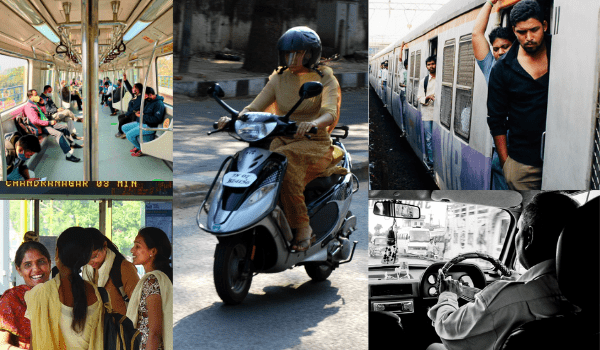A year ago, when people started working from home, there was a sigh of relief. People were happy that they wouldn’t have to travel to work every day.
However this happiness didn’t last for long. Remote working turned out to be monotonous and people started missing their commute to office. For many, commute time was the ‘me’ time.
There are several other reasons why people miss their commute time, or rather why it is important.
Three very prominent benefits come to mind when we think of the commute time to office.
“It was like a personal time for people to carry out small activities to re-energise themselves and also broaden their horizons, which really helped them stay engaged at work.”
Jacob Jacob, group CHRO, Malabar Group
Switch on – switch off phenomenon
If we were to ask someone what they thought was the most challenging part of working from home, the most common answer would be, the inability to mentally draw a line between work and personal time. The commute time helped us create that line. When one dressed up and travelled to work, a ‘switch-on’ button seemed to get enabled automatically. It would turn on and the day would just begin. On the commute back home, the sense of having completed certain tasks made that switch turn off. The feeling of ‘Yes, my work is over, so let’s switch-off’ used to take over and help one unwind. However, now, that switch is gone, and as a result, many people are facing mental health problems.
Sharing one example, Kamal Vatnani, India leader – people & culture, Ensono, admits that sometimes he is tempted to respond to a mail or a call just after his morning exercise. At other times, he even skips a bath in the morning if there is work. In pre-COVID times, the commute helped him create a mental divide between work and home.
“There is an interesting change that I am noticing these days. Earlier people used to request for work-from-home to skip commuting to the office. But now, they are so mentally exhausted, they are requesting for working-from-office,” shares Vatnani.
“There is an interesting change that I am noticing these days. Earlier people used to request for work-from-home to skip commuting to the office. But now, they are so mentally exhausted, they are requesting for working-from-office.”
Kamal Vatnani, India leader – people & culture, Ensono
‘Me Time’
For many people, the commute to work was their personal time — the ‘me time’ they had to themselves. This time was used to listen to music, catch up on reading, tune in to the news, watch a movie or a show or simply take a power nap. That precious one- or two-hour long journey helped one recollect and reenergise oneself.
“It was like a personal time for people to carry out small activities to re-energise themselves and also broaden their horizons, which really helped them stay engaged at work,” says Jacob Jacob, group CHRO, Malabar Group.
Introspection
The commute was also a time when people could introspect and examine their own self to see how they could improve at their work. Serious thought was given to what had been said and what should have been said at a meeting; or different or better ways of doing the same routine task.
“Whether people are missing their commute time or not depends on which part of the country or city they are living in.I do agree that 80 to 90 per cent of employees will be missing office, but are they really missing their commute time? I personally don’t think so. I live in Bangalore and the city traffic is so bad that I feel blessed that I don’t have to commute to work every day.”
Jitender Panihar, CHRO, MoEngage
A global study found that managers and team leaders were more impacted by the elimination of the daily commute, more than the average employee. Ever since work-from-home became the norm, managers have been spending more time than usual on responding to mails, calls and messages.
What can be done?
“While it is next to impossible to replace the commute time, one can certainly block an hour or so for oneself in the entire day,” suggests Vatnani, who has factored this into his daily work schedule.
There is also another interesting side to this story. Jitender Panihar, CHRO, MoEngage, feels that whether people are missing their commute time or not depends on which part of the country or city they are living in. He and some other close friends at work, personally do not really miss their commute time. They are enjoying the flexibility to manage their work well.
“I do agree that 80 to 90 per cent of employees will be missing office, but are they really missing their commute time? I personally don’t think so. I live in Bangalore and the city traffic is so bad that I feel blessed that I don’t have to commute to work every day,” admits Panihar.
However, there are also stories from Mumbai, where people have made good friends while travelling to work on local trains. It was part of their social life.
All said and done, people do look forward to commuting to work once again. It keep them active, moving and in good health. Whether it impacted their productivity at work or not, is feed for another discussion.



